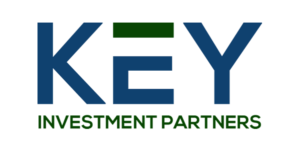Be Radically Open-minded and Radically Transparent
>
“Radical open-mindedness and radical transparency are invaluable for rapid learning and effective change. Learning is the product of a continuous real-time feedback loop in which we make decisions, see their outcomes, and improve our understanding of reality as a result.”
I read these words in Dalio’s Principles at a fortuitous time in my life, as it coincided with the completion of my and my co-founders’ 360 feedback sessions. During these sessions, we openly discussed the personality traits of one another that got under our skin as well as the strengths and weaknesses of our performance in the business. Over the several weeks following our reviews, I noticed an improvement in all of our communication skills and decision making. When I came across Dalio’s advice to “Be radically open-minded and radically transparent”, it clicked for me. The key to running a successful enterprise is establishing an honest culture where the feedback loop’s flywheel never stops. Stepping back from this realization, I started thinking about the lessons I could pass on to new entrepreneurs:
-
Find co-founders: When we pursue new investment opportunities, it’s an immediate red flag if the company is run by a solo founder. The main reasons we strongly support founding teams (ideally 2-3 founders) are as follows:
-
Additional manpower: Starting a business is hard. Damn near impossible at times. This includes starting a first-time venture capital fund – and for those founders seeking capital that think funds spring up overnight with tens of millions of capital ready to deploy, I encourage you to read this blog post by Parker Gale. Your most valuable resource is time, and one dedicated founder is unlikely to have sufficient capacity to complete all of the tasks required to start a successful enterprise. Ask any solo founder, and they’ll generally tell you their biggest mistake was not having co-founders. Don’t be stingy with your equity. Owning a significant piece of something great is better than owning 100% of nothing.
-
Moral support: Again, starting a business is hard. Damn near impossible at times. Entrepreneurship is a roller coaster of high highs and low lows. You’ll have nights when you wake up in a cold sweat because of the stress. You’ll have days when you want to give up. You need teammates who believe in your mission as much as you do, and who you can lean on when you’re struggling. Every successful person has gone through these moments. For example, take this page from Charles Darwin’s personal diary in October 1861, after he had already risen to fame for On the Origins of Species: “But I am very poorly for today and very stupid and hate everyone and everything.” Keep going. Trust one-another and encourage each other to push through these moments. You need to have aggressive patience, which as defined by Andy Frisella, is the ability to manage two conflicting points:
-
Understand that building a successful business is going to take time.
-
Be aggressive about everything you can to make it happen. Literally do everything you can to expedite the process with urgency.
-
-
2.Be honest with your team: As you continue to scale your business, ensure you develop a culture of honesty, open-mindedness and transparency. The reason many of the established bureaucratic companies lose to fledgling startups is because they stop trusting their employees, they stifle dissent and they centralize decision-making. Don’t be afraid to confront your weaknesses. Surround yourself with brilliant people. I consider myself lucky to have two of the most brilliant people I’ve ever met as co-founders (and an analyst who could run circles around all three of us).
And for those entrepreneurs going through one of the lows on their rollercoaster, I’ll bookend this post with another quote from one of the best performers of all time:
>
“Be so good they can’t ignore you.”
DISCLAIMERS: This site is not intended to provide any investment, financial, legal, regulatory, accounting, tax or similar advice, and nothing on this site should be construed as a recommendation by Key Investment Partners LLC, its affiliates, or any third party, to acquire or dispose of any investment or security, or to engage in any investment strategy or transaction. An investment in any strategy involves a high degree of risk and there is always the possibility of loss, including the loss of principal. Nothing in this site may be considered as an offer or solicitation to purchase or sell securities or other services.


